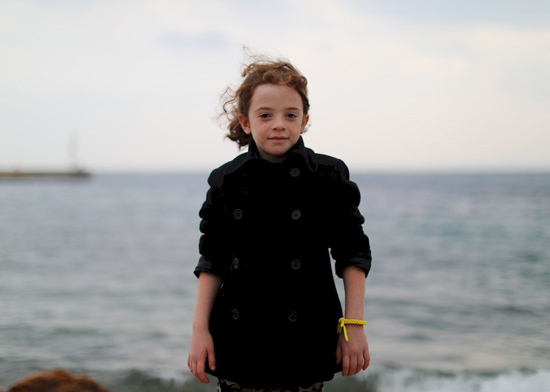Send a tweet to leaders in the Americas and help tear down the walls for people seeking asylum
Mexico and US, stop sending back people to violence in Central America. Instead say #IWelcome now! #WorldRefugeeDay
— AmnestyCanada (@AmnestyNow) June 20, 2017
> LEARN MORE: Listen to Facebook Live interview: Amnesty International Canada’s Refugee Coordinator Gloria Nafzigar and refugee lawyer Andrew Brouwer discusses the Canada-US Safe Third Country agreement (45 minutes)
> SIGN PETITION: Send message about the Canada-US Safe Third Country agreement agreement
Every day, all over the world, people make one of the most difficult decisions of their lives: to leave their country in search of a better, safer life.
There are many reasons why. Some leave home to get a job or an education – they are usually called migrants. Others are forced to flee human rights violations, such as torture and persecution, from an armed conflict or another type of crisis. Or they might have been targeted just because of who they are or what they do – for example, for their ethnicity, religion, sexuality or political opinions. We usually refer to this group as refugees or asylum-seekers.
These people’s journeys can be full of danger and fear. Some are detained by the authorities as soon as they arrive in a new country. Many face daily racism, xenophobia and discrimination, and risk falling prey to human trafficking and exploitation.
Others end up feeling alone and isolated, having lost the support networks most of us take for granted – their community, relatives and friends.

Sarah, aged six, pictured on the Greek island of Chios, 28 November 2016. She can name the capitals of almost all countries in the world. Sarah and her family fled bombing in her home city of Homs. They told Amnesty International that when they tried to cross the border between Syria and Turkey, Turkish police fired shots at them.
What exactly is an asylum-seeker, a refugee and a migrant?
Who is an asylum-seeker?
An asylum-seeker is someone who is seeking international protection abroad, but hasn’t yet been recognized as a refugee.
Who is a refugee?
A refugee is a person who has fled their own country because they are at risk of serious human rights violations there. Because their own government cannot or will not protect them, they are forced to seek international protection. There are currently over 21 million refugees in the world. The vast majority of them – 86% – live in developing regions.
Who is a migrant?
A migrant moves from one country to another, often to find work. There may also be other reasons such as wanting to join relatives, or to escape natural disasters. Some move because they want to, while others feel forced to leave because of poverty or other serious problems. People can migrate ‘regularly’, which means they have official permission to stay in a country, or ‘irregularly’, which means they don’t yet have this permission. Whatever their status, all migrants are entitled to have their human rights protected.

Activists from Amnesty France show that they welcome refugees, Place de la Republique, Paris, October 2016.
What is Amnesty calling for?
Amnesty has championed the human rights of refugees, asylum-seekers and migrants for decades. We work to make sure governments honour their responsibility to protect their rights, condemning any policies and practices that undermine them.
One example is making sure countries don’t outsource their border controls – essentially paying another country to stop people reaching their borders. Another problem is when governments don’t process people’s asylum claims properly, leaving them in limbo – sometimes even in detention – for years. We also want to make sure migrants are protected from being exploited and abused by their employers or by traffickers.
Refugees
Right now, our I Welcome campaign calls on governments worldwide to welcome their fair share of the worlds’ refugees. With enough political will, our leaders can protect people fleeing conflict and persecution through a solution called resettlement. We are also pushing for other safe and legal ways for refugees to start new lives, such as reuniting family members who have been separated, community groups sponsoring refugee families to move to their country, and universities and businesses offering people study or work visas as a way to start a new life.
Governments should never force anyone to go back to a country where they are at risk of human rights violations. Instead, refugees should be offered a safe place to live and opportunities to work, a place to live and access to schooling and healthcare.
Just like everyone else, refugees shouldn’t have to face discrimination. They should be allowed to move around freely, and to keep their own identity papers and travel documents.
Asylum-seekers
Seeking asylum is a human right, which means everyone should be allowed to enter another country to seek asylum. The asylum procedure should be fair and effective, giving people access to the UN Refugee Agency (UNHCR) if they need or want it.
Anyone who faces being sent to another country should be treated fairly and with dignity. The legal principle of non-refoulement means that no one should be forced to return to a country where their life or wellbeing would be at risk.
Migrants
As with refugees and asylum-seekers, governments must protect migrants from racist and xenophobic violence, exploitation and forced labour. Migrants should never be detained or deported without a legitimate reason, or discriminated against.
What the law says
Migrants, refugees and asylum-seekers’ rights are protected by international law, regardless of how and why they arrive in a country. They have the same rights as all other human beings, plus special protections including:
- The Universal Declaration of Human Rights (Article 14), which states that everyone has the right to seek and enjoy asylum from persecution in other countries.
- The 1951 UN Refugee Convention, which protects refugees from being returned to countries where they risk being persecuted.
- The 1990 Migrant Workers Convention, which protects migrants and their families.













